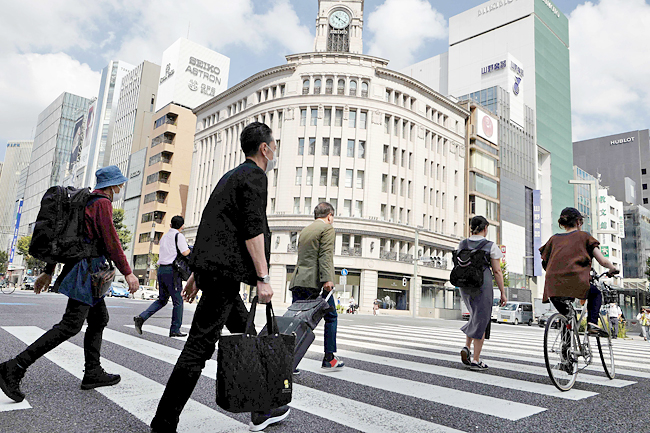CNA – Core consumer prices in Japan’s capital, a leading indicator of nationwide inflation, rose 2.8 per cent in September from a year earlier, exceeding the central bank’s two per cent target for a fourth straight month and marking the biggest gain since 2014.
The data reinforced market expectations that nationwide core consumer inflation will approach three per cent in coming months and may cast doubt on the Bank of Japan’s (BOJ) view that recent cost-push price increases will prove temporary.
The Tokyo core consumer price index (CPI), which includes oil products but excludes fresh food prices, was in line with a median market forecast and followed a 2.6 per cent gain in August. It matched a 2.8 per cent gain in June 2014.
Prices rose for a wide range of goods and services from electricity bills and chocolate to sushi and hotel bills, yesterday’s data showed, indicating that more firms were passing on rising raw material costs to households.
“The data showed price rises were broadening. We’ll likely see core consumer inflation exceed three per cent in October,” said Norinchukin Research Institute Chief Economist Takeshi Minami

“There’s still a strong possibility inflation will gradually moderate next year due to peaking energy costs and the chance consumers won’t be able to swallow further price hikes.”
The data is among key factors the BOJ will scrutinise when it produces fresh quarterly growth and inflation forecasts at its next policy-setting meeting on October 27 and 28. The nationwide CPI data for September is due on October 21.
BOJ Governor Haruhiko Kuroda pledged to keep monetary policy ultra-loose despite the recent rise in inflation, which he sees as driven by temporary factors such as higher fuel and raw materials costs rather than strong consumption.
But signs of broadening price rises prompted some BOJ policymakers to warn last month that inflation may overshoot expectations, highlighting the challenge Kuroda faces in justifying ultra-low interest rates.
The BOJ’s dovish stance, which makes it an outlier among a wave of central banks raising rates to combat rising inflation, has pushed the yen to 24-year lows and inflated the cost of importing already expensive fuel and raw material.
While the BOJ is set to keep interest rates ultra-low, the pace of its money printing is slowing is a sign the central bank is quietly phasing out Kuroda’s stimulus programme.
Japan’s monetary base, or the amount of cash circulating in the economy, fell 3.3 per cent in September from a year earlier to mark the first year-on-year decline since April 2012, data showed yesterday.
The drop highlights a turning point in Kuroda’s quantitative easing programme deployed in 2013, which aimed at firing up inflation to his two-per-cent target with heavy money-printing.







